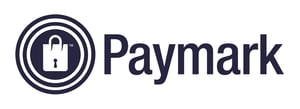Paymark is New Zealand’s leading electronic payments provider, processing more than 75 per cent of the country’s electronic transactions. These transactions represent approximately 50 per cent of all spending in New Zealand.
Formed in 1989 by four major New Zealand banks wanting to establish a national real-time payments system, Paymark has grown to become an integral part of New Zealand’s economic landscape providing, arguably, the best EFTPOS system in the
world.

Paymark began searching for a robust
performance management programme to replace the
company’s paper-based system.
The Mariner7 online performance management tool
Today, Paymark’s 136 staff have confidence in the system’s fairness, robustness and consistency. People
engage in regular conversations with managers and understand how their work fits into where Paymark is heading.

In 2006, Paymark began searching for a robust performance management programme to replace the company’s paper-based system.
Heidi Parlane, Paymark’s Head of People and Performance, recalls: “We were looking for something to give us a helicopter view, which we couldn’t get with a paper-based system. The existing system was unable to adequately rate employee outputs, behaviours and competencies, and it was difficult to track and measure whether people were setting clear objectives. Annual reviews were retrospective rather than forward looking; there were inconsistencies between teams and managers and some people were ‘falling between the cracks’. The company was keen to introduce a company-wide bonus system to replace the existing one which was for managers only.
which placed our people at its centre. We wanted a performance system that would create a much more transparent and stronger link between performance and reward. We also wanted to ensure that high performance would be rewarded and low performance would not.”
Mariner7’s performance management system was selected for its “reputation as a quality system that could be tailored to meet Paymark’s needs, and for the company’s excellent customer service”. After a trial period in early 2007, it was rolled out to all of Paymark’s then-100 staff with a clear message that the new system was largely about “setting people up for success at their annual review”.
The new review process, which has continued for all staff to the present day, involves three reviews each year: two unrated reviews between employee and manager to discuss major issues, set objectives and determine how the employee is tracking against objectives – and an annual more in-depth review which is rated.
Key to the success of Mariner7 was Paymark’s decision to launch several other HR tools simultaneously – a new, company-wide bonus framework, improved leadership coaching, and an annual round table. The round table process allows Paymark’s managers and executive team to discuss ratings prior to managers meeting with staff, ensuring rating consistency across the company and avoiding descriptions loaded with value-judgements and inconsistencies.
“One of the things I really enjoy about working with Mariner7 is that they are really receptive to feedback and making changes that take away any niggles. Some are just small but they make a difference for some of our people. They also share enhancements made by themselves or other clients.”
Heidi Parlane
Paymark’s Head of People and Performance
Today, Paymark’s 136 staff have confidence in the system’s fairness, robustness and consistency. People engage in regular conversations with managers and understand how their work fits into where Paymark is heading.
Employees enter data into the system as regularly as they like, building up a thorough, up-to-date record of activities and achievements for discussion at their next review, and making it easy for managers to keep tabs on people and performance.
New recruits soon realise how simple Mariner7 is to use and quickly understand its benefits. The system requires managers to set objectives with new staff within the first few months of employment. Heidi Parlane says this open communication early on in a person’s job could
languish if Mariner7 was not in place.
Key to the success of Mariner7 and the other HR tools introduced in 2007 has been the full support of Paymark’s Chief Executive Officer Simon Tong and the exceptional buy-in from managers. “Simon Tong’s support throughout has been invaluable, and our managers are really involved. We have been patient to allow time for managers to understand how the system best works for them. Now, they and other employees are much more engaged and, because it’s a participative process, many have a feeling of ‘ownership’.”
In September 2007 – just six months after Mariner7’s introduction – the JRA Best Places to Work Survey found that since the previous Paymark survey:
For example, the rating scale that determines employees’ bonuses has been upgraded to provide greater transparency. Having transparency around the bonus framework was critical and Paymark has found it “incredibly useful” to be able to extract information from the Mariner7 system to ensure that.
Another key improvement was changing the language used for self-rating. Today, this better reflects people’s perceptions of their objectives and competencies because it uses less judgemental language which, in turn, encourages people to feel more comfortable about
self-rating. People rate themselves more accurately and, as a result, are able to have more honest, meaningful discussions with their managers.
Heidi Parlane says: “When we first stepped into the system, most people in the company were rated ‘very good’, and nobody was rated ‘exceptional’ or needing improvement. With our revised language for ratings, the majority of people are now rated ‘good’. There’s a fair cluster rated ‘very good’ and we now have a small group of ‘exceptionals’.
 “One of the things I really enjoy about working with Mariner7 is that they are really receptive to feedback and making changes that take away any niggles. Some are just small but they make a difference for some of our people. They also share enhancements made by themselves or other clients.”
“One of the things I really enjoy about working with Mariner7 is that they are really receptive to feedback and making changes that take away any niggles. Some are just small but they make a difference for some of our people. They also share enhancements made by themselves or other clients.”
A recent example is an enhancement to the range of web browsers Mariner7 is compatible with.
Another enhancement to the Paymark system has been a feature allowing employees to load their objectives under each of the company’s strategies – including incorporating the icons Paymark uses internally. The benefits are twofold. Firstly, staff – all of whom participate in setting their own objectives – can better understand Paymark’s ‘big rocks’ and their own connections to them, and, secondly, each time an employee loads information, the strategy’s message is reinforced.
The addition of templates with a complete set of KPIs for call centre staff has brought further benefits, making it simpler and faster for people to develop their individual KPIs.
Recent investment in leadership development at Paymark has provided managers with the tools for developing a coaching culture to help staff achieve success. Supporting this is the Mariner7 individual development plan module which is part of the performance management system. This allows staff to record and develop their learning and growth
which, in turn, assists in achieving their aspirations and successes. Heidi Parlane says that, at present, the company is “only scratching the surface” of the development tool capabilities. “But they are sitting there ready for us to use. That’s our next big piece of work.”
Also ready for use are Mariner7’s reporting capabilities. In 2012, Paymark began tapping into these and today they easily track the proportion of people with confirmed objectives in a particular timeframe, and identify people who have had one-on-ones with their manager.
The company plans to use the reporting capabilities more in the future, in particular to identify internal talent – people, for instance, with strong aptitude for delivering objectives and a strong profile against Paymark’s competencies. The system provides an easy way of tracking those people and, ultimately, growing and retaining them.
Mariner7 has met all of Paymark’s expectations and continues to provide enhancements that set people up for success. Heidi Parlane sums up ...
“The Mariner7 people are really responsive and easy to work with. Mariner7 has strengthened the link between performance and reward, and helps us figure what performance looks like and how to fairly value
someone’s output and behaviour. It has given us the consistency we wanted, and reinforces the company’s values and strategies.”